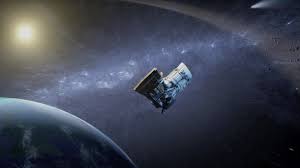By: Elizabeth Kwan
NASA’s Near-Earth Object Wide-field Infrared Survey Explorer, also known as the NEOWISE telescope, has been orbiting the Earth and taking pictures of the skies above for a treacherous journey of ten years; however, it finally shut down on August 8, 2024.
NEOWISE was launched in December of 2009. NEOWISE orbits the Earth once every 95 minutes, a mere five minutes slower than the International Space Station (ISS). It monitored asteroids and comets that were likely to clash into Earth in infrared vision. NEOWISE also took pictures of supermassive black holes, galaxies, and stars.
The growing strength of solar activity has caused NEOWISE’s downfall, swaying its orbit off track. NEOWISE is currently 217 miles above Earth. Its original altitude reached 310 miles. The telescope is expected to burn up in Earth’s atmosphere by the end of the year.
On Thursday, August 8, NEOWISE was officially decommissioned and set into hibernation, marking the finale of NEOWISE’s career, yet forming a bright beginning for its substitute.
“It’s the end of an era, but the beginning of a new one,” said Dr. Amy Mainzer, a principal investigator for NEOWISE working at the University of California, Los Angeles. As NEOWISE gradually dies out in the empty blackness of the cosmos, its legacy is continued with a next-generation telescope known as the Near-Earth Object Surveyor (NEO Surveyor). This replacement will target asteroids within thirty million miles of the blue planet and will be launched as early as September 2027.











